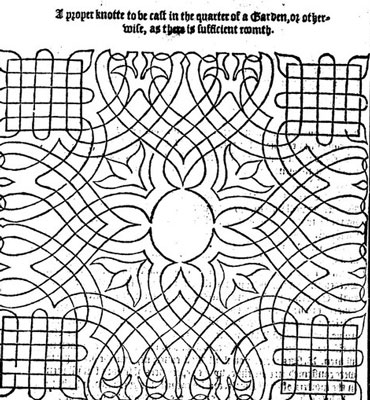English at Leicester
On Difficulty in Early Modern Literature
Project overview
 This project is an ongoing research collaboration between Hannah Crawforth (KCL) and Sarah Knight in the School of Arts which brings together scholars working on different aspects of difficulty in sixteenth- and seventeenth-century writing. Our work traces how the concept of difficulty develops through the early modern period, following the first use of ‘difficulty’ as meaning ‘hard to understand’.
This project is an ongoing research collaboration between Hannah Crawforth (KCL) and Sarah Knight in the School of Arts which brings together scholars working on different aspects of difficulty in sixteenth- and seventeenth-century writing. Our work traces how the concept of difficulty develops through the early modern period, following the first use of ‘difficulty’ as meaning ‘hard to understand’.
The Latin difficultas, Anglo-Norman difficultee and Italian difficoltà occur much earlier, but ‘difficulty’ meaning ‘the quality of being hard to understand’ is not attested in English before the late fourteenth century, in Chaucer’s ‘Friar’s Tale’. The early modern period witnessed an impressive, contended range of applications of the word across very different types of writing. We find it applied to theological controversy in Thomas More’s argument that the ‘dyffyculte’ of St Paul’s ‘wrytyng’ leads readers to find ‘sumtyme some mater of contencyon’ (Supplication of Souls; 1529). In his practical manual The art or crafte of rhetoryke (1532), Leonard Cox argues that ‘all excellent & commendable thyng be hard & of difficulty’. At the other end of our chronological span, in Of Education (1644) Milton writes of learning other tongues that ‘if the language be difficult, so much the better’, and of the riches available to students once they have mastered Greek and Latin, ‘the difficulties of grammar being soon overcome’. Clearly authors of the period had to think about and tackle the question of difficulty in their writing.
We live in an era when the intellectual value and political importance of raising and discussing difficult topics, thinking through difficult ideas, and teaching our students to think through difficult problems are all crucial. We are organising three events in 2018 both to encourage wider conversation and debate. 2018 is also the fortieth anniversary of George Steiner’s influential essay ‘On Difficulty’ (1978), an attempt to provide a taxonomy of difficulty and to argue for its central importance in literature and philosophy (first published in The Journal of Aesthetics and Art Criticism 36: 3 (Spring 1978): 263-276). Steiner’s article, together with more recent critical studies such as Rita Felski’s The Limits of Critique (Chicago, 2015) and James Longenbach’s The Resistance to Poetry (Chicago, 2004), have all contributed to our thinking about early modern difficulty.
We ask why authors might deliberately write works which are difficult to understand; whether difficulty is always élitist; and whether complexity-seeking scholars might create difficulty, forming a puzzle so that they can be the ones to solve it. We are especially interested in exploring the following research questions:
- How is difficulty to be understood in the work of particular authors?
- How can we most effectively teach difficult early modern texts?
- How can the category be debated theoretically and conceptually?
- Where does difficulty reside in considerations of literary form and linguistic medium?
- How does difficulty motivate and complicate archival and editorial work?
- Are we in a historical moment when reading and teaching difficult literature is particularly under threat?
Past events
18 June 2019, International Milton Symposium 12, Strasbourg, France
Milton and Difficulty: A Roundtable
To extend the discussion further, by inviting perspectives from Miltonists across the globe, and to reflect on how our understanding about Milton and difficulty has both deepened and ramified, we have organized a roundtable discussion at the International Milton Symposium to focus on key difficulties in reading, teaching, translating, and editing Milton. Each roundtable contributor will speak briefly about a specific aspect of Milton and difficulty: Hannah Crawforth (KCL) on the difficulty of form; Islam Issa (Birmingham City) on intercultural difficulty; Nicholas Hardy (Birmingham) on theological difficulty; Sarah Knight (Leicester) on the difficulty of translation.
26 to 27 Oct 2018, King’s College London
On Difficulty in Early Modern Literature: A Symposium
A two-day international symposium. Confirmed speakers include: Peter Auger, Eoin Bentinck, Gilles Bertheau, Warren Chernaik, Miles Dawdry, Daniel Derrin, Jeff Dolven, Nicholas Hardy, Islam Issa, Kevin Killeen, Mary Ann Lund, Dianne Mitchell, Joe Moshenka, Victoria Moul, Kathryn Murphy, Edward Paleit, Jennifer Richards, Elizabeth Scott-Baumann and Nigel Smith.
The symposium has been generously funded by the Society for Renaissance Studies and by the London Shakespeare Centre.
4 July 2018, University of Sheffield
Society for Renaissance Studies Conference
We organised two panels in which speakers explored a variety of forms: emblems, plays, poems, prose works, sermons and translations:
‘Difficult Poetics’ panel
Featuring Sarah Knight (Leicester), '"Certainly the most difficult of all our poets": The Worthy Knots of Fulke Greville’, Elizabeth Scott-Baumann (KCL), 'Difficult Women: Hard Poetics and Easy Style’, and Hannah Crawforth (KCL), '"Blind Feet": Milton and the Difficulties of Form'
‘Figures of Difficulty’ panel
Featuring Kathryn Murphy (Oxford), 'The Language of Idiots: Michel de Montaigne, John Florio, and Translating Difficulty', Mary Ann Lund (Leicester), 'Difficulty, Theology, and Rhetoric in the Sermons of John Donne', and Sarah Howe (KCL), 'Difficult Devices: Emblems, Imprese, and the Poetics of Obscurity in Renaissance England'